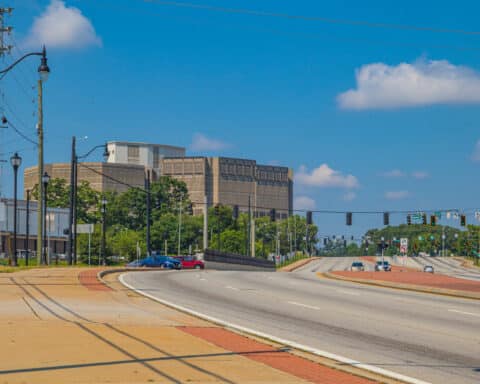(The Center Square) – Members of the public looking for access to public records in Georgia might be surprised by the hefty price it could cost.
Georgia law says, “An agency may impose a reasonable charge for the search, redaction, and production or copying cost of records responsive to an open records request.”
The cost must be calculated based on the “hourly salary of the lowest-paid employee qualified to conduct the research of an open records request,” the law reads. The first 15 minutes of the employee’s time is free.
Margaret Kwoka, a law professor at the University of Denver, said state and local agencies and other governmental bodies often lack the resources they need to fulfill requests.https://efe8dd6b874be753bbec6b56652574e0.safeframe.googlesyndication.com/safeframe/1-0-37/html/container.html
“So they really do, you know, view these fees as sort of necessary,” Kwoka said. “These are departments that may not get more than a handful of requests a year and don’t have a systematic way of dealing with that.”
Although the federal government offers fee waivers for requests in the public interest, very few states have the waiver provision, Kwoka said.
Requesting the same records from public bodies in Georgia can cost residents nothing or thousands of dollars – depending on who you ask.
Under the Georgia Open Records Act, The Center Square sent identical requests to the city of Atlanta and Gwinnett and Fulton counties: the number of overtime hours and amount of overtime pay for public safety employees between March 15 and Sept. 10 and salary budgets for the past four years.
Fulton County provided the requested data at no charge. Gwinnett County said the request would cost $45. Atlanta’s invoice for the same records was $1,146.
Georgia First Amendment Foundation spokesperson Richard T. Griffiths said Atlanta’s price tag for the records is “ridiculous.”
“This is very high for something that you know that they already have,” Griffiths said. “I think it is disingenuous because it’s very clear that that data would have been provided already to senior managers.”
With some employees working remotely because of the COVID-19 pandemic, delays in providing records can be expected, Griffiths said, but governments should not hamper the free flow of information.
“Transparency is absolutely key to public trust, and when public officials make it difficult to get information, it undermines trust in those institutions,” Griffiths said.https://efe8dd6b874be753bbec6b56652574e0.safeframe.googlesyndication.com/safeframe/1-0-37/html/container.html
Kwoka said she never has received an invoice for more than $1,000. She said she has seen a pattern of smaller state agencies or counties making large financial demands for records, not necessarily based on good calculations.
“When they do that, it really can have a big, chilling effect in terms of the requester’s ability to access the records,” Kwoka said.
Gwinnett County said it would take the finance department about an hour in total to compile the requested information. Atlanta estimated it would take its budget and payroll units 30 hours to retrieve the same records.
Gwinnett County’s customer service representatives said they rounded the hourly pay for the finance employee who would complete the request, and the price would be prorated based on the actual time it took.
The hourly cost in Atlanta for the four employees it would take to complete the request ranged from $31.73 for a budget-unit employee to $52.79 for the unit’s manager to review the budget. Copies of Atlanta’s annual budgets are available on the city’s website.
Atlanta Police Sgt. John Chafee said the cost and time estimate was prepared by the city’s finance department and declined to explain the charges any further.
Kwoka said records of government spending should be easily accessible to employees and for the public to see.
“We should all be appalled that the police department doesn’t quickly have basic information on how much they’re spending,” she said. “There’s a whole other problem there.”
The Atlanta-Journal Constitution reported last month its reporters were quoted a $33,000 price tag to review tens of thousands of pages of Georgia Emergency Management and Homeland Security Agency correspondence related to the state’s COVID-19 response efforts. The agency estimated it would take eight months – 1,230 hours – to complete.https://efe8dd6b874be753bbec6b56652574e0.safeframe.googlesyndication.com/safeframe/1-0-37/html/container.html
David Pozen, a law professor at Columbia University, said there is an extra administrative burden that comes with record requests, citing federal costs in his study published in the University of Pennsylvania Law Review. The requests also can divert personnel outside of the records room from their duties, which can incur additional expenses or a loss of labor.
Pozen recommended public records be published online or in an archive on a regular schedule to avoid the request-and-respond process.
Even after The Center Square trimmed its request to Atlanta for overtime pay and hours was reduced to three months in each of the past two years, the price tag was $227.
Atlanta does not have the option to receive an electronic payment. Requests must be paid by check or money order. Only one of the three counties in metro Atlanta accepts electronic payments for record requests.
Disclosure: This article may contain affiliate links, meaning we could earn a commission if you make a purchase through these links.






